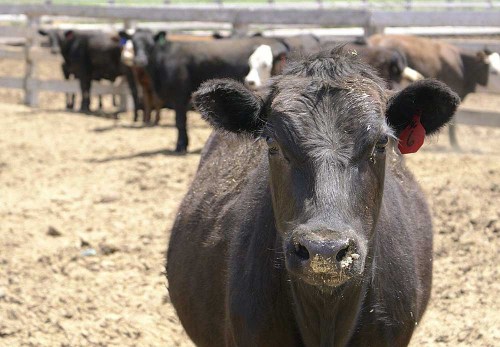Anti-animal ag initiative raises alarm among Oregon farm groups
Published 11:00 am Thursday, May 13, 2021
SALEM — Animal agriculture could soon be considered animal cruelty under a proposed ballot measure in Oregon.
Farm groups are pushing back against Initiative Petition 13, which would strip away most protections for livestock producers under the state’s animal abuse laws.
The result would effectively criminalize everything from slaughtering livestock to basic animal husbandry, including branding and dehorning cattle, castrating bulls and docking horses, sheep and pigs, said Mary Anne Cooper, vice president of public policy for the Oregon Farm Bureau.
The initiative also seeks to re-classify livestock breeding and artificial insemination as sexual assault of an animal — a Class C felony.
“It’s a very different tack than we have ever seen before,” Cooper said. “Basically, they’re looking to ban anything with animals that is not doctoring.”
Initiative Petition 13 was filed Nov. 2, 2020, with the Oregon Secretary of State’s office. The chief petitioner is David Michelson, a Portland animal rights activist.
A similar proposal, called the Protect Animals from Unnecessary Suffering and Exploitation, or PAUSE, Act is also being pursued in Colorado.
The Oregon campaign recently cleared its first regulatory hurdle, submitting 1,000 sponsorship signatures for verification on April 28. If approved, supporters will need to collect 112,020 signatures to place the initiative on the November 2022 ballot.
Michelson did not return calls for comment.
According to state law, a person commits animal abuse if they “intentionally, knowingly or recklessly cause physical injury to an animal,” or “cruelly cause the death of an animal,” except when practicing good animal husbandry. The petition seeks to remove that exemption.
“IP13 doesn’t change our definition of abuse, it merely changes who is considered above the law,” the “Yes on IP13” website states.
Cooper said the petition is the biggest threat to Oregon’s livestock industry in decades.
“I think it would leave producers in incredibly uncertain territory,” she said. “It is very dangerous territory for folks.”
Perhaps the cruelest twist, Cooper said, is the effect the initiative would have on 4-H and FFA programs. Animal abuse in Oregon is considered a Class A a misdemeanor but is a felony if committed in the presence of a minor child.
“You think of 4-H programs, and people who have artificial insemination programs, and all of a sudden anybody helping them with their projects could be considered a felon,” Cooper said. “That’s just wild.”
Supporters say the initiative would not ban the sale of meat, leather and fur in Oregon.
“It would require that animals be allowed to truly live a good life free from abuse, neglect and sexual assault,” the campaign website states. “After an animal lives a full life, and exits the world naturally and humanely, this initiative does not prohibit a farmer from processing and distributing their body for consumption.”
But Tom Sharp, a Harney County rancher and president of the Oregon Cattlemen’s Association, said that is not an economically viable business model for producers.
“How would a producer ever plan on managing a herd of cattle, until some uncertain date when that herd has reached their full and natural lifespan?” Sharp said. “At that point, it’s impractical to take those animals to market for processing.”
Oregon has 13,000 cattle ranchers statewide with 1.3 million head of cattle. In 2019, cattle and calves ranked as the second-most valuable agricultural commodity, at $652 million. Sharp said the petition could put those businesses at risk.
“I don’t see, from a business standpoint, how that would pencil out for any of these beef producers,” he said.
The initiative doesn’t only target agriculture. It would also erase animal cruelty exemptions for hunting, fishing, wildlife management, rodeos and scientific research, among others.
Amy Patrick, outreach coordinator for the Oregon Hunters Association, said the initiative is ringing alarm bells and could potentially make hunting illegal in the state.
“It’s an attempt to get at fishing, trapping, hunting and additional wildlife management practices,” Patrick said. “Removing the exemptions would allow them to be classified as animal abuse. It’s not animal abuse by any stretch of the imagination.”
Dave Dillon, executive vice president of the Oregon Farm Bureau, said the organization is assembling a broad coalition of groups and businesses to oppose the initiative.
“There is a lot of concern among members,” Dillon said. “It’s going to take a lot of hands. That’s the job ahead of us, and we’ll be ready to do it.”









